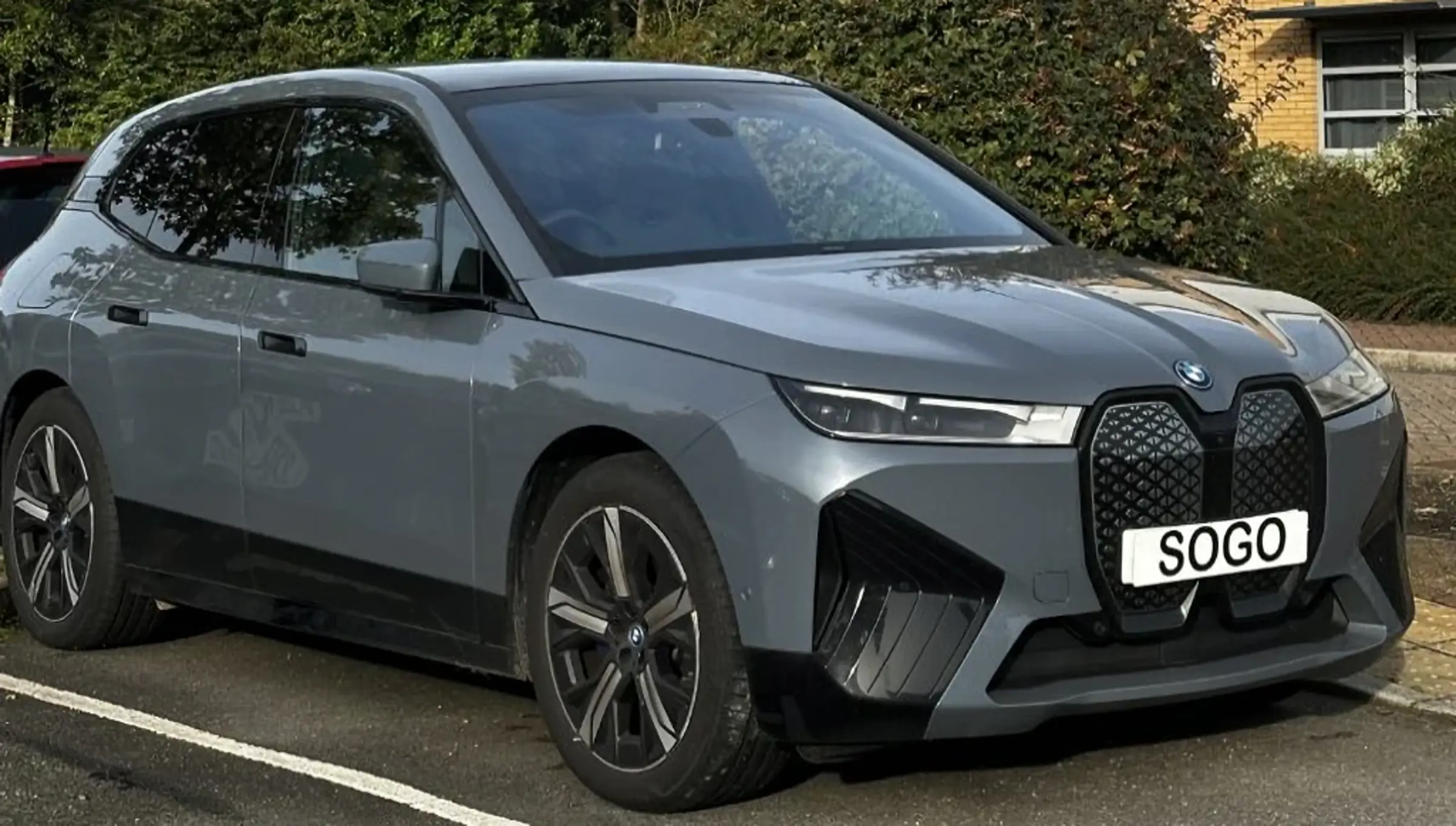Do you think an electric car isn't right for you because you do high mileage? Nigel Witherick's story might change your mind.
Nigel does 18,000 miles a year in his pure electric BMW iX. And he's not alone, research shows electric vehicles are driven nearly 2,000 miles further annually than petrol models.
Full disclosure: Nigel is our head of systems and infrastructure, but he's also a SOGO customer who has been driving electric cars for the past four years. Before leasing his BMW iX, he had a Polestar 2 Long Range Dual Motor.
Nigel made the switch from an internal combustion engine vehicle (ICE) due to the company car tax savings and because he moved to Milton Keynes, a city which has good EV (electric vehicles) charging infrastructure, and offers incentives such as free parking for electric car drivers.
"The free parking, combined with the cost of electricity at that time, meant I was easily saving hundreds of pounds a month," says Nigel. "Once I got used to driving an EV though, I would never want to move back to ICE. For me, the drivability of an EV is so much better than an ICE vehicle."
300-mile round trip proves "easily manageable"
A lot of Nigel's journeys are local, but he makes a 300-mile round trip from Milton Keynes to the other side of London via the M25 and Dartford Crossing twice a month. This journey is "easily manageable, thanks to some well-placed charging sites", he says. In fact, Nigel estimates there are four times as many chargers en route as when he first started driving an EV.
He recently went on a week-long holiday in the Peak District in his EV, and although he needed to plan a few charges while he was there, he didn't find it a problem. "While the car charged, we took the opportunity to take in the sights," he says.
The range he achieves in his electric car depends on the type of journey (motorway versus urban, as lots of stop-start driving in city centres means more opportunity for regenerative braking), and the time of year (cold temperatures affect battery efficiency).
"Range anxiety is still a real consideration, but in all honesty, the battery technology is changing all the time," says Nigel. "Add this to a little planning, and you may find that an EV fits better than you'd expect."
EVs are driven further than petrol cars
In fact, despite worries about range anxiety, electric cars are driven 1,800 miles further annually than petrol cars, The Telegraph reported earlier this year.
It published analysis of data from MOT testing, done by independent research organisation New AutoMotive, which showed electric cars are driven 6,000 miles on average, compared to 4,200 miles for petrol models.
The investigation also discovered that the average combined mileage of diesel and petrol vehicles is 5,500 miles. However, diesel, as a standalone fuel type, had a higher average annual mileage than electric.
New AutoMotive suggests that the cost per mile could be behind the trend. High mileage drivers typically choose diesel cars as they offer higher fuel economy than petrol, making them cheaper to run.
Similarly, an electric car can work out much cheaper for high mileage drivers if charged on an off-peak electricity rate at home. For example, an electric car costs just 8.5p per mile (ppm) compared to 14.4ppm for an equivalent petrol car, according to the latest AA EV Recharge Report.
There also appears to be little reason to worry about small batteries not being effective, as the MOT data indicates that EVs with medium-sized batteries (40–50 kWh capacity), such as the Nissan Leaf, drive just as far as those with the largest batteries.
Deciding whether to go electric
So, given the research and his own experience, what’s Nigel’s advice about making the switch to electric?
"It's essential that people take a look at where they travel, how often they travel, and whether there is supporting infrastructure for their switch to EV," he says.
"Try to speak to other people who drive similar journeys and have electric vehicles or even plug-in hybrids.
Some great telematics programs can help you evaluate your drive in an ICE car to see whether your trip distances and locations would work with EVs.
They can even provide an indication of the potential savings you could make by switching from ICE, even with the higher kWh pricing at the moment – not to mention any company car tax savings!"
As we offer flexible leases, with no long-term commitment, you can lease an electric car for a short period of time to see if it's right for you.
